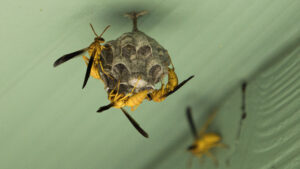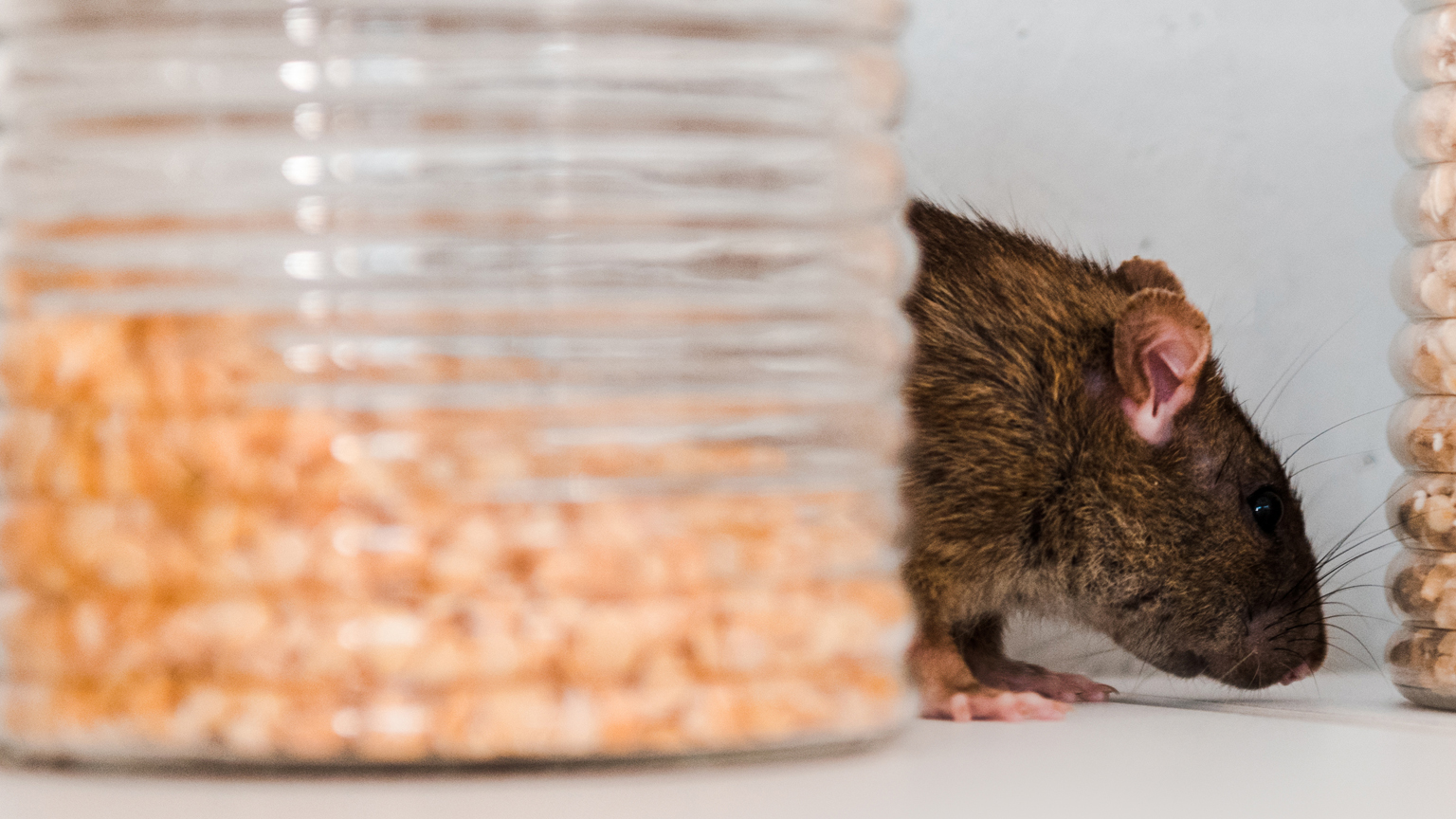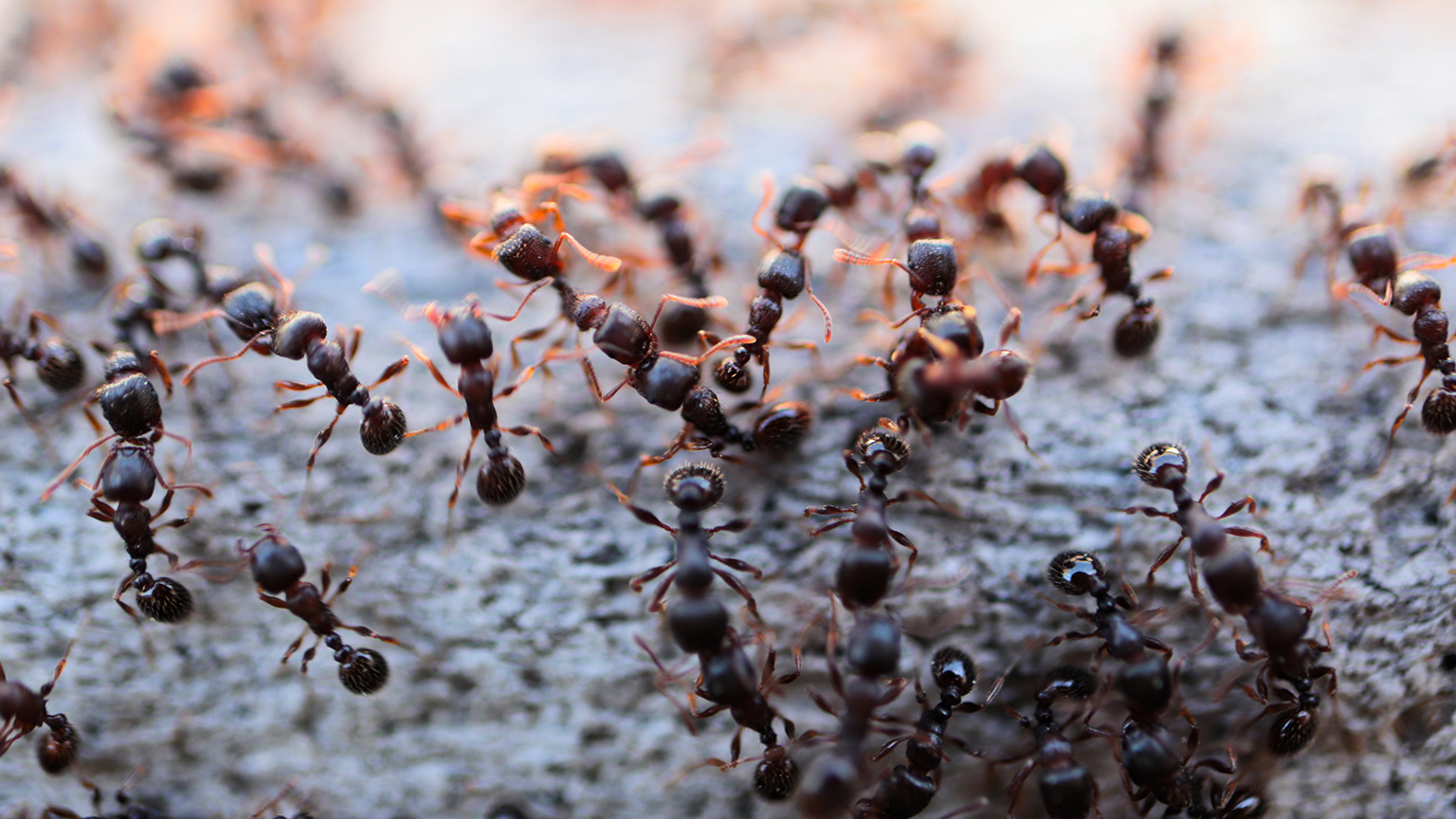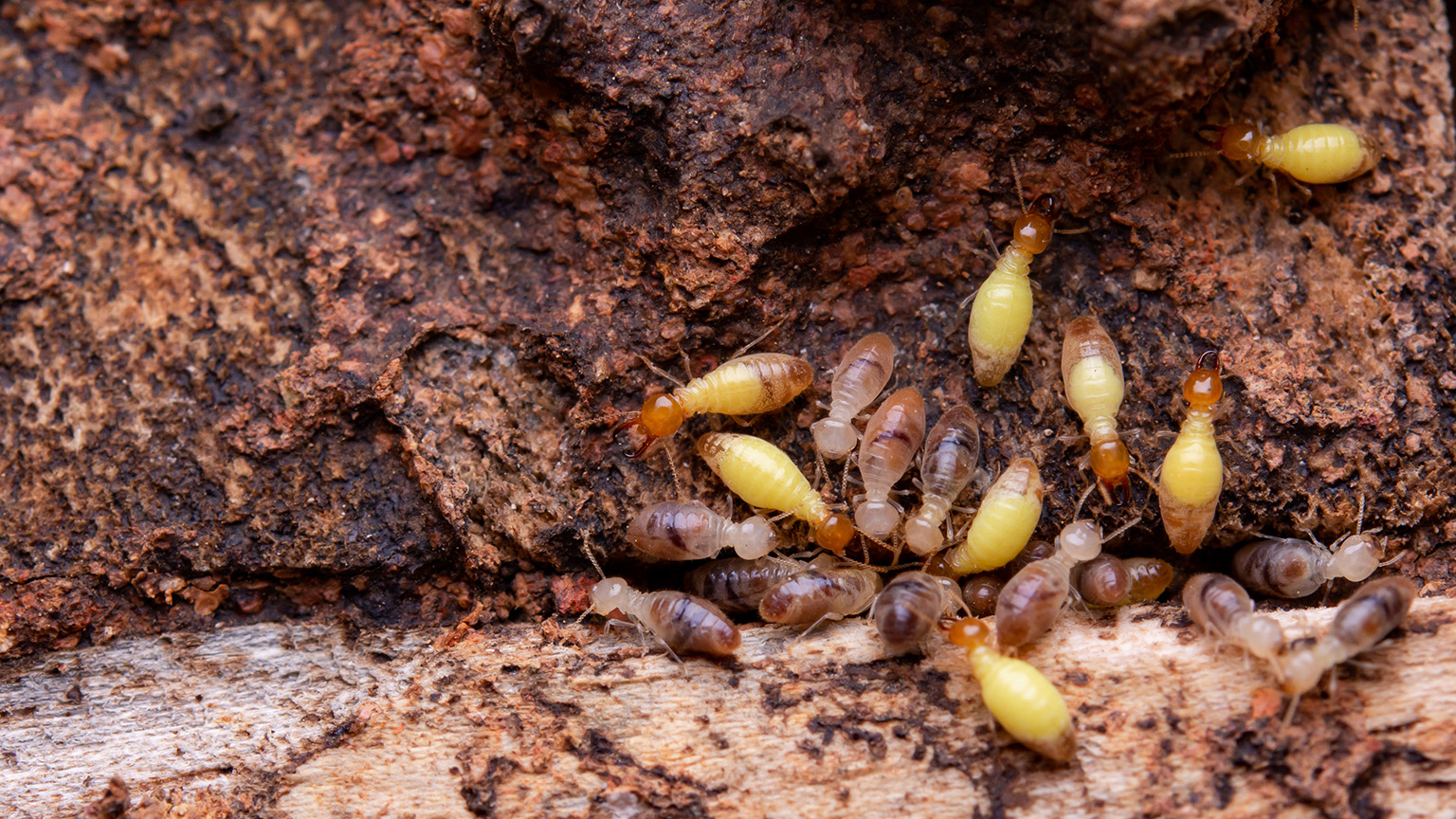Nothing ruins a good time like a wasp! Whether they’ve somehow found their way inside your home or are surprising you with painful stings while mowing your lawn, wasps make it hard to relax — especially for people with children or allergies.
Keep reading for tips on how to keep the wasps away and how to get rid of them if they are persistent.
How Do Wasps Get Into Your Home?
Wasps are notorious for finding ways to set up shop outside of your home, which is annoying. They’re also known to get into infrequent spaces like an unsealed garden shed. They’ll squeeze their pointy little bodies through any tiny gap they can find, including:
- Small openings in walls, windows, doors, and foundations
- Uncovered vents and chimneys
- Tears or holes in window and door screens
If they’ve breached your home, they’ll often nest in attics, eaves and soffits, and wall voids. This makes detecting the location of the nest challenging.
How To Keeps Wasps Away From Your Home
Wasps are pretty annoying roommates, whether they live inside your house or in your yard. Here’s some tips on how to deter wasps from setting up shop near you:
- Remove food sources: Reduce potential nesting sites by keeping your yard nice and tidy. Remove clutter, piles of leaves, and scrape off any mud wasp nests as soon as they appear.
- Seal entry points: If, in rare circumstances, you do find a wasp inside your home, inspect your home for gaps around doors and windows, cracks in walls, and openings around utility entry points. Seal these gaps with caulking or weatherstripping to prevent wasps from entering your home. Bonus: this will also help prevent other critters from getting inside!
- Install screens: It’s nice to crack a window to let in cool breezes, so make sure you install screens so that wasps don’t float in on that breeze. Also, fit screens on any exterior vents.
- Regular inspections: Inspect your house and yard regularly to detect early signs of wasp activity, such as nest creation or scouting wasps.
- Professional pest control: If you have a persistent wasp problem or discover an established nest on your property, it’s time to get in touch with the professionals to safely remove nests and implement preventative measures.
How Can I Get Rid of a Wasp Nest? Can I Do It Myself?

If the nest is small and just getting started, you can use a broom, hose, or plastic scraper to nip it in the bud before it gets established — however, mud wasp nests are super hard to get off!
If a wasp nest is large and there are quite a few wasps in and around it, do not remove the nest yourself. If you search on the internet, you’ll find lots of different methods for ‘safely’ removing a wasp nest. The truth is, wasps are faster than you and they do not like being provoked. Even if you try the ‘spray and run’ method, the wasps will still have time to hurt you before they succumb to the insecticide.
Wasps are efficient nest builders—some species can establish a nest in a few hours! Regular inspections of your property to watch for wasp activity is key to preventing nests from getting established.
How can I keep wasps away naturally?
If you are looking for natural methods to control a wasp problem, there are a few methods out there with mixed reviews as to their effectiveness.
- Peppermint oil is often touted as a natural wasp repellent due to its strong scent, which some people claim deters wasps and other pests. It may be useful used in conjunction with other treatments, but it could be effective in deterring wasps from established nests is limited. However, it’s also an impractical solution: essential oils are expensive, you would need to reapply frequently, and there is a lot of real estate to cover with oil when considering your yard and home.
- Fake wasp nests are often used with the idea that they’ll trick wasps into thinking another colony has established a nest and will look for other territory. Again, some people find success with this method and others don’t. It isn’t going to hurt, so there’s no harm in trying this method.
- Wasp traps, either homemade or commercial, use a sweet bait to capture roaming wasps. This method can be effective in capturing stray wasps and reducing the overall number of wasps in your yard, but won’t help with an established nest and won’t keep wasps from establishing a nest.
- Mixing vinegar and dish soap in a spray bottle to spray on a wasp nest is sometimes used as an alternative to commercial pesticides. This method is unlikely to kill an entire nest, and is very likely to anger the wasps. We do not recommend spraying an established wasp nest with natural or commercial pesticides—leave it to the professionals.
Professional pest control for wasps
Professional pest control is a safe and effective way to get your wasp problem under control. If the preventative measures above are not cutting it, book an appointment with Bundilla Pest Control to get the infestation taken care of efficiently and with no stings.
Visit our Bee and Wasp Removal page for more information on our process.


